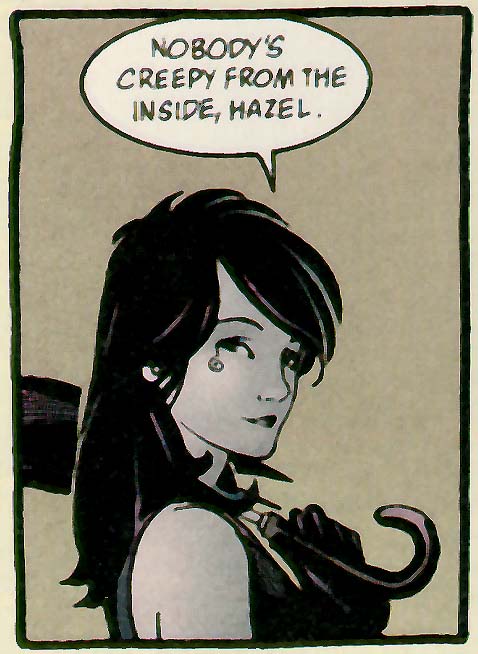What is anxiety?
Anxiety is a familiar feeling. Similar to fear,
anxiety warns us of danger or distress, but unlike fear, anxiety occurs
when there is no realistic danger. Individuals suffering from an Anxiety
Disorder experience severe, persistent, or disabling anxiety.
What is a panic attack?
People experiencing a panic attack are suddenly overwhelmed
with intense anxiety, shortness of breath, difficulty catching a breath,
rapid heartbeat, or a pain in the chest The attacks are normally
brief, but they can occur several times a week. The person may continue
to feel anxiety between attacks. When attacks are persistent then
the problem is probably Panic Disorder. It is common for people
with Panic Disorder to believe they are having a heart attack, about
to die, or go insane. Anticipatory anxiety occurs when the person
worries about when or where the next attack will occur or whether they
will survive.
What treatment is available?
A thorough physical exam, EKG & blood tests are needed
to rule out "physical" illness. A complete psychiatric evaluation is needed
to establish a final diagnosis. There are a variety of
promising treatments and a psychiatrist can recommend
the best approaches. The tricyclic antidepressants, have
recently proved of value in some anxiety disorders. Generally a tricyclic
such as Tofranil (imipramine) is used to block spontaneous panic attacks.
Anticipatory anxiety may be treated with minor tranquilizers such as valium
(diazepam) or Xanax . New or more specific drugs are regularly being
tested. Most behavioral techniques focus around "deconditioning"
or unlearning inappropriate anxiety.
What self-help is there?
There are several things that you can do to help control
panic attacks. Below is a list of some tips to remember:
 The
feelings are normal bodily reactions - exaggerated. The
feelings are normal bodily reactions - exaggerated.
 They
are not harmful - just unpleasant. They
are not harmful - just unpleasant.
 Do
not add frightening, negative, or unpleasant thoughts Do
not add frightening, negative, or unpleasant thoughts
 Notice
what IS not what you fear MIGHT. Notice
what IS not what you fear MIGHT.
 Wait
for fear to pass - Do not fight or run away - accept it. Wait
for fear to pass - Do not fight or run away - accept it.
 When
frightening thoughts stop, it fades by itself. When
frightening thoughts stop, it fades by itself.
 Think
about progress to date despite the difficulties Think
about progress to date despite the difficulties
 Think
how pleased you'll be when you succeed this time. Think
how pleased you'll be when you succeed this time.
 .When
you begin to feel better, start to plan for next time .When
you begin to feel better, start to plan for next time
 When
you are ready, start off in an easy, relaxed way. When
you are ready, start off in an easy, relaxed way.
 There
is no need for effort or hurry. There
is no need for effort or hurry.
 Change
"What If's" to "So What". Change
"What If's" to "So What".
 Stay
in the present. Stay
in the present.
 Don't
judge your feelings. Don't
judge your feelings.
 Thoughts
and feeling are NOT actions. Thoughts
and feeling are NOT actions.
 What
am I telling myself that is scaring me? What
am I telling myself that is scaring me?
 I
am what I tell myself. I
am what I tell myself.
 The
more I do, the more I can do. The
more I do, the more I can do.
 I've
done it before, I CAN do it again! I've
done it before, I CAN do it again!
 I
am the same person, here or in my safe place. I
am the same person, here or in my safe place.
 I
can handle it, nothing terrible will happen. I
can handle it, nothing terrible will happen.
 The
feeling are distressing, NOT dangerous. The
feeling are distressing, NOT dangerous.
 In
reality, there is nothing that can hurt me here. In
reality, there is nothing that can hurt me here.
 The
anxiety can only go so high and then it comes down. The
anxiety can only go so high and then it comes down.
 SLOW
DOWN. SLOW
DOWN.
 Take
slow, deep breaths. Take
slow, deep breaths. |
Anxiety
Panic Attack
Treatments
Self Help
Anxiety Links



Common Symptoms
Shakiness
Trembling
Jumpiness
Fidgeting
Muscle tension
Fatigability,
Sweating
Pounding heart
Dizziness
Lightheadedness
Upset stomach
Dry mouth
Frequent urination
Diarrhea
Blushing
Rapid breathing
Fearfulness
Rumination
Worrying
Apprehension
Distractibility,
Irritability
Impatience
Tenseness
Insomnia.
|